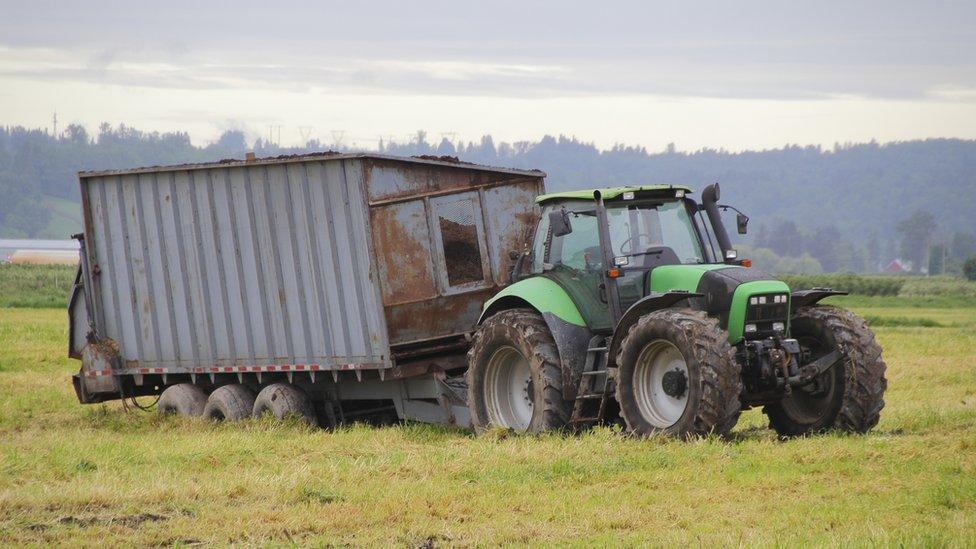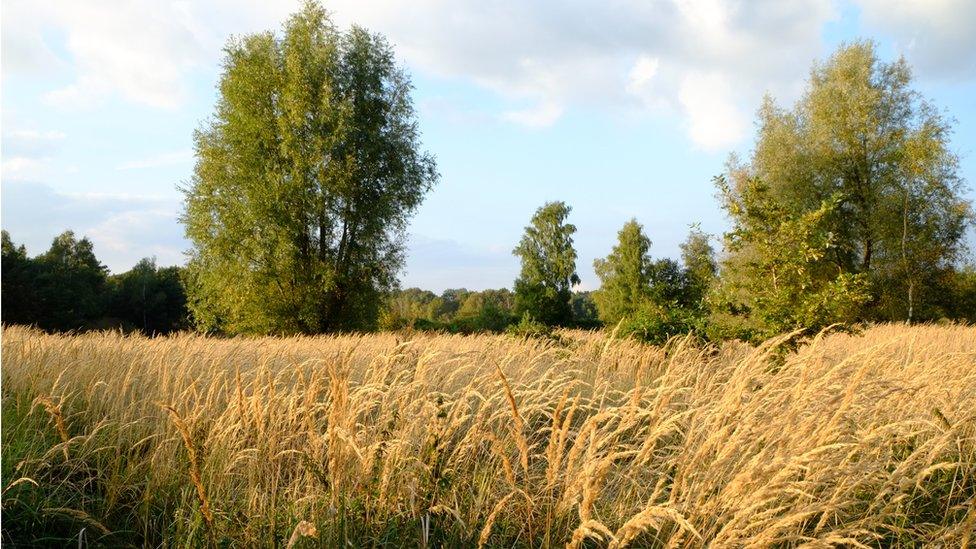'Damning' report into EU farm payments reform
- Published

Audit Scotland said farmers had faced "lengthy delays" to payments
The Scottish government should "get to grips" with a "calamitous" attempt to reform agricultural payments, a farmers' union has said.
NFU Scotland said a "damning report" from the auditor general into the programme showed it may never be fit for purpose.
Audit Scotland has highlighted "serious cost and operational issues".
The Scottish government said it was focused on paying crofters and farmers before the 30 June deadline.
If the system does not meet European Commission regulations by that date, the Scottish government could face a penalty of between £40m and £125m.
Under the Common Agricultural Policy (CAP), about £4.6bn in European and Scottish government funding will be paid out between 2015 and 2020.
The money is mainly given to improve agricultural productivity and to ensure farmers have a reliable income.
The CAP Futures programme in Scotland was meant to make the rural payment process more efficient.

The payments are designed to improve agricultural productivity and to ensure farmers have a reliable income
However, in their fourth update on the scheme, auditors said the programme had "serious cost and operational issues", particularly with the slow delivery and poor performance of the new IT system that processes support claims.
Audit Scotland said this had caused lengthy delays which have had a negative impact on farmers - many of whom were already experiencing financial difficulties caused by low milk prices and severe flooding.
NFU Scotland President Allan Bowie said the report showed how poorly Scottish farmers and crofters had been served.
"Far from being 'back on track', the legacy of failure is continuing and this report will guarantee that confidence in the system remains shot," he said.
"The first job of our new cabinet secretary must be to get to grips with this debacle and ensure that the system becomes compliant and is fully functional before the money runs out."
Fergus Ewing was appointed as the new rural economy secretary in a cabinet reshuffle on Wednesday.
Conflict of interest
Caroline Gardner, Auditor General for Scotland, said the project had faced "serious challenges since the beginning" and had suffered "a number of failures" in the way it had been been managed.
She told BBC Scotland: "We found delays in getting the system up and running and the speed at which it does its work means that farmers don't know what their final claim will be.
"Around 80% of them have now received an initial payment but 20% haven't received anything yet - and we are heading towards the European Commission's deadline of 30 June for making final payments."
Ms Gardner's report also highlights a conflict of interest within the leadership team of the programme, revealed by a BBC investigation in March.
BBC Scotland found that a former delivery director of the project, Dominic Prabhu, had supplied dozens of contractors from his own company to work on the programme.
His company Spectromax Solutions saw its assets soar last year - from about £81,000 in 2014 to about £3.5m in 2015.
Dr Prabhu has denied there was a conflict of interest.

Dozens of IT contractors working on the project were supplied by the programme's former delivery director
Auditors said the Scottish government was aware of a conflict after being notified by a whistleblower and said "there was an opportunity for the delivery director to benefit financially from the programme recruiting from his company".
The report added: "The Scottish government set up a resources group in March 2015 to ensure that recruitment decisions were not taken by an individual.
"The delivery director was a member of this group, and therefore still had the opportunity to influence recruitment decisions... The delivery director was still able to sign off overtime claims for contractors, including those coming through his agency.
"The delivery director should not have been on the resources group and allowed a direct involvement in recruitment decisions."
'Catastrophic failure'
The cost of the programme was originally estimated to cost £102m, but it now has a final budget of £178m and a reduced scope.
Scottish Labour demanded that the SNP make an "urgent statement" to parliament about the "catastrophic IT failure", while the Conservatives said the government had "taken their eye off the ball" and failed rural communities.
The Scottish Greens said the IT shambles was "inexcusable" given the importance of the industry to Scotland.
Deputy First Minister John Swinney told BBC Scotland: "I am a member of parliament that represents rural Scotland. I know the difficulty and the challenges that this has presented for the farming industry."
Mr Swinney said the new rural economy secretary, Fergus Ewing, would make a statement to parliament once he had studied the detail of the report.
He said: "We are one of the first countries in the EU to pay farming support.
"I appreciate there has been slippage of about four months for many of the payments that have been made to farmers, but by the intervention of the first minister and by the working of this system, we have made sure that a comprehensive range of payments have been made to farmers as part of the commitments that we gave."
- Published18 March 2016
